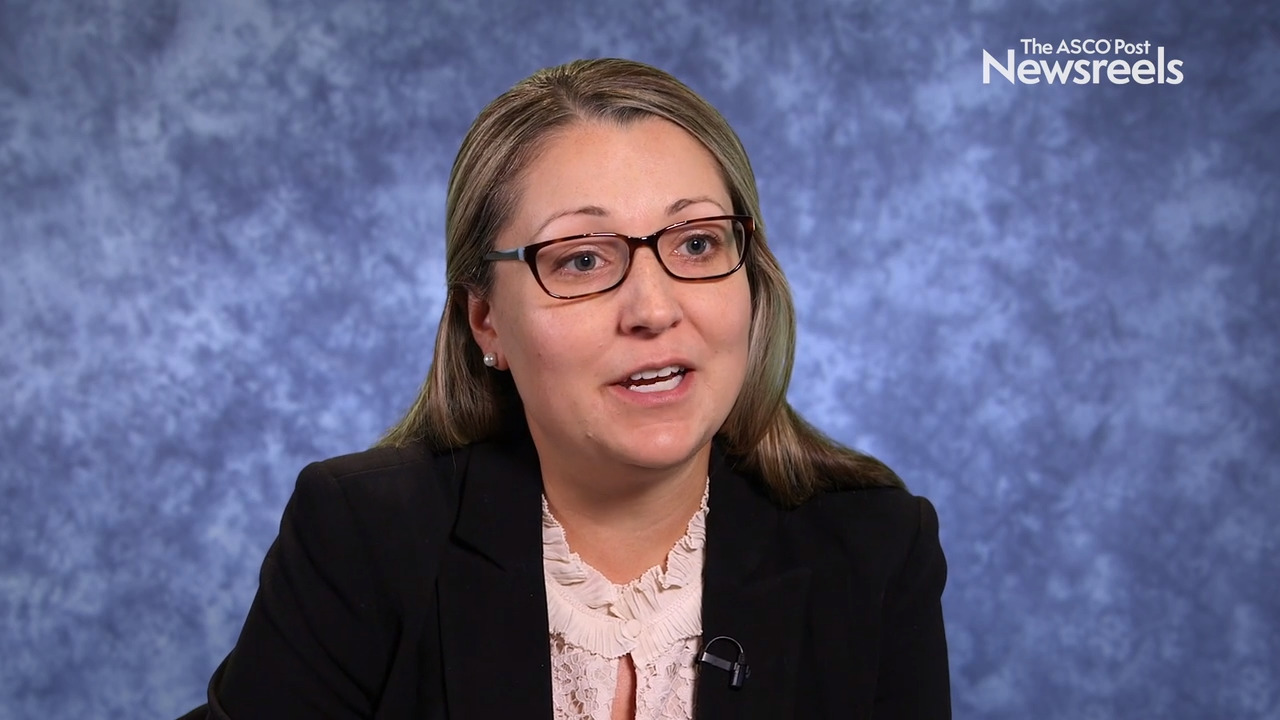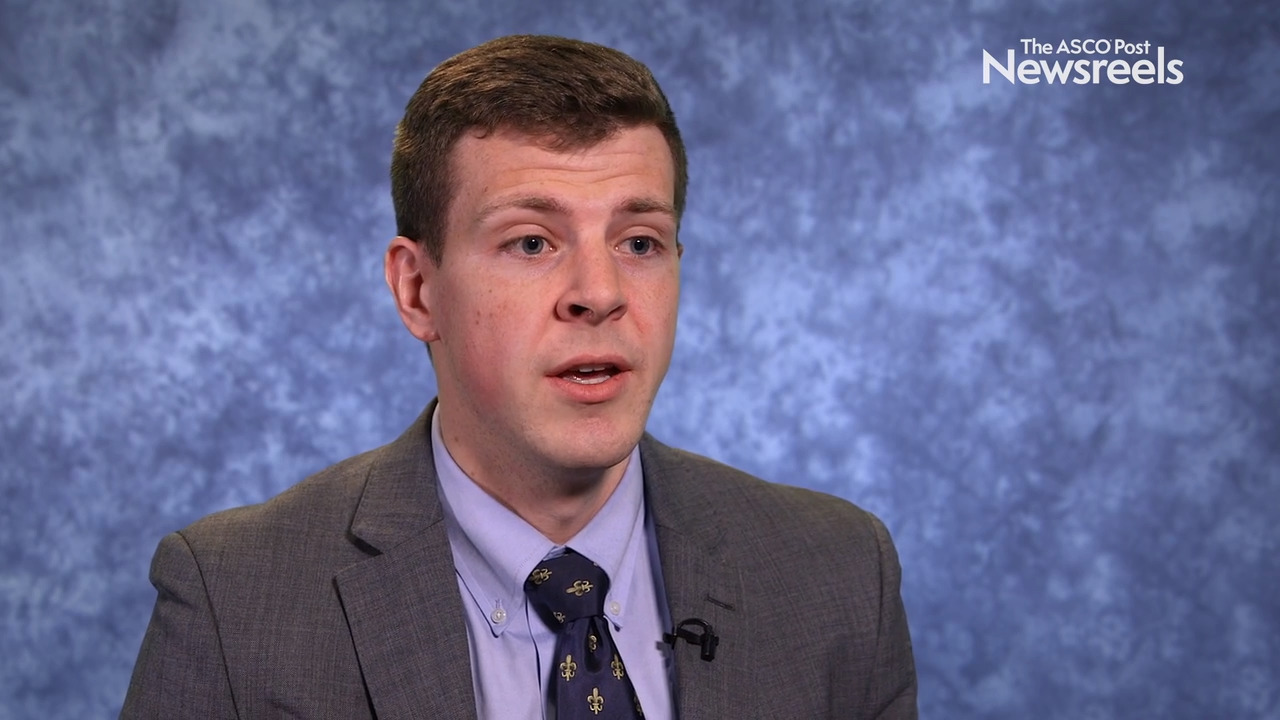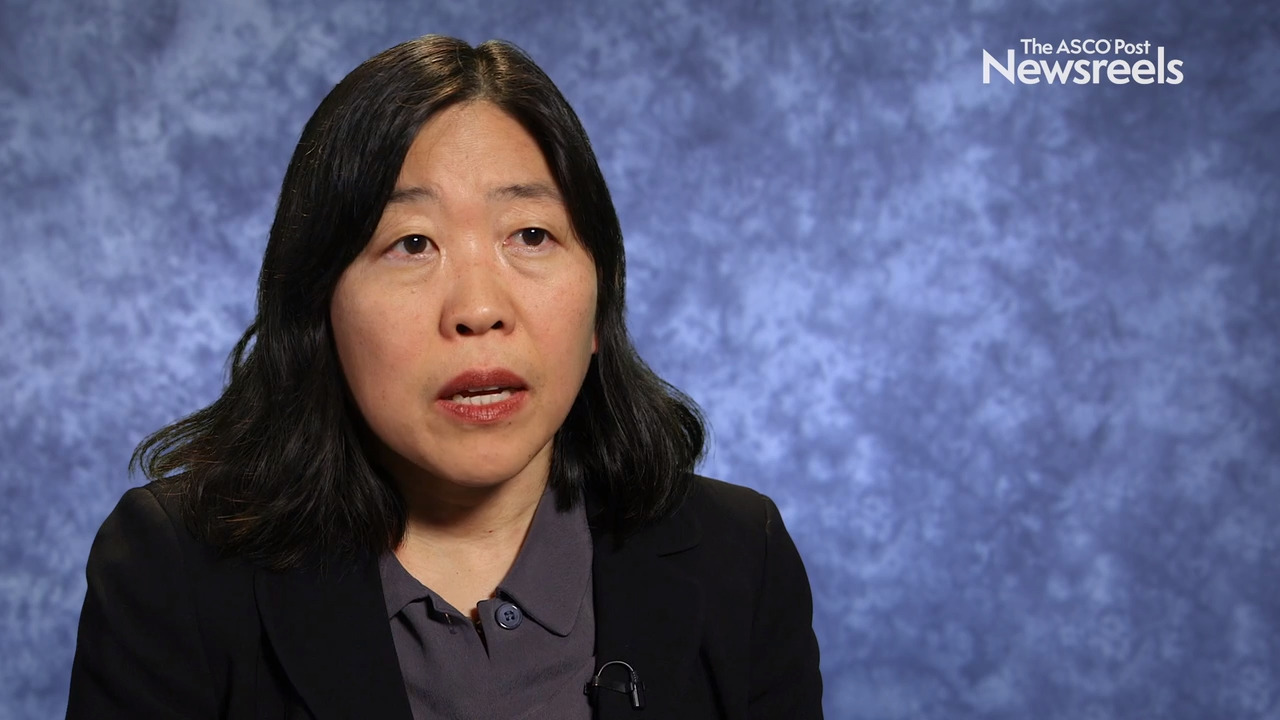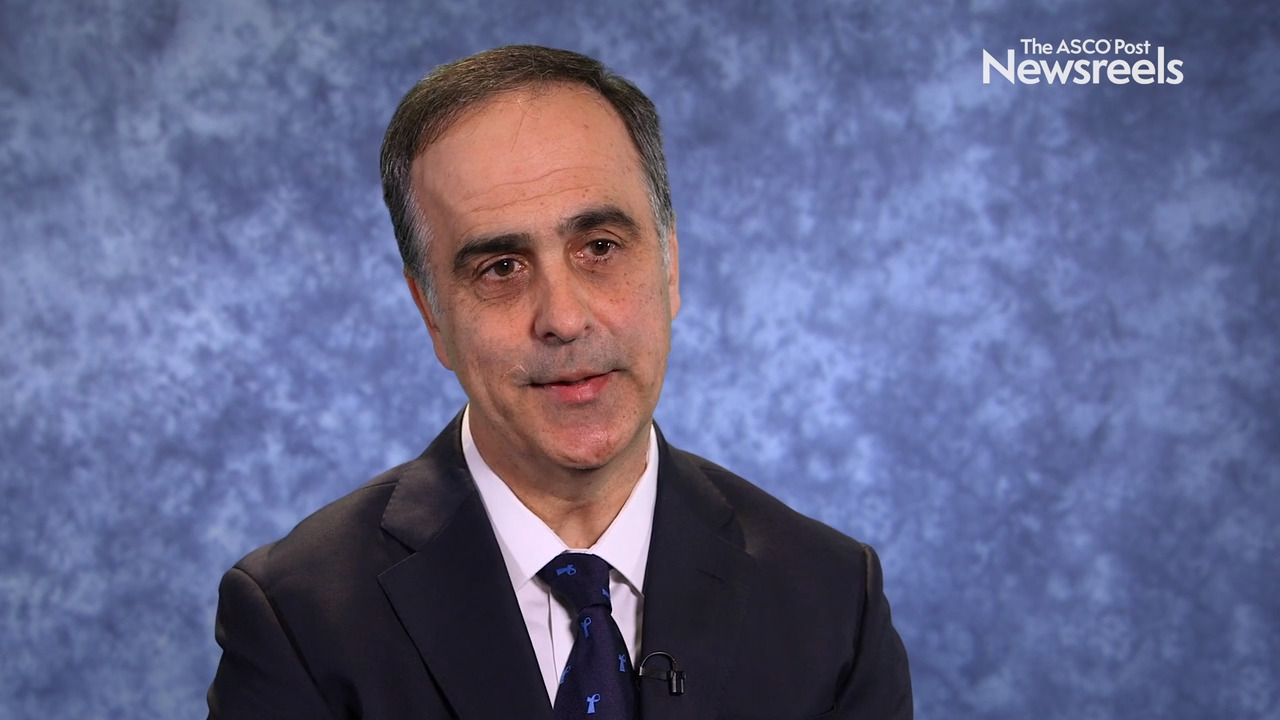Andreas Rimner, MD, on the PACIFIC Trial: Durvalumab for Stage III NSCLC
2019 ASTRO Annual Meeting
Andreas Rimner, MD, of Memorial Sloan Kettering Cancer Center, discusses study findings showing that, for patients with stage III non–small cell lung cancer, durvalumab reduced the rate of and time to disease progression vs placebo and also reduced the number of new distant lesions (Abstract LBA6).
David Routman, MD, of the Mayo Clinic, discusses his study findings showing that detectable human papillomavirus circulating tumor DNA in the postoperative setting may be linked to disease progression, which may help improve patient selection for treatment intensity (Abstract LBA5).
Erica H. Bell, PhD, of The Ohio State University, discusses phase III findings from a prognostic and predictive molecular subgroup analysis of radiotherapy vs radiotherapy plus procarbazine/lomustine/vincristine in high-risk low-grade gliomas (Abstract 161).
Justin Barnes, MS, of the St. Louis University School of Medicine, discusses his findings on the risk of suicide, which is higher in patients with cancer than in other adults but can be reduced by health policy interventions, including components of the Affordable Care Act (Abstract LBA9).
Sue Sun Yom, MD, PhD, of the University of California, San Francisco, discusses phase II results showing that swallowing-related quality of life after deintensified chemoradiation therapy may improve in patients with p16-positive, nonsmoking-associated, locoregionally advanced disease (Abstract LBA10).
Andrew Kneebone, MD, of Royal North Shore Hospital, discusses phase III study findings showing that at 5 years, biochemical control was similar between adjuvant and early salvage radiotherapies, the latter sparing half of the men potential side effects of radiotherapy without any significant compromise in outcome (Abstract 77).





